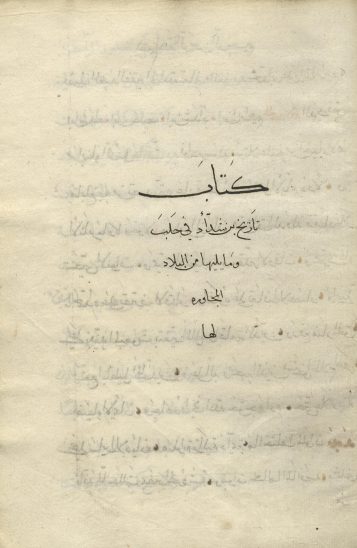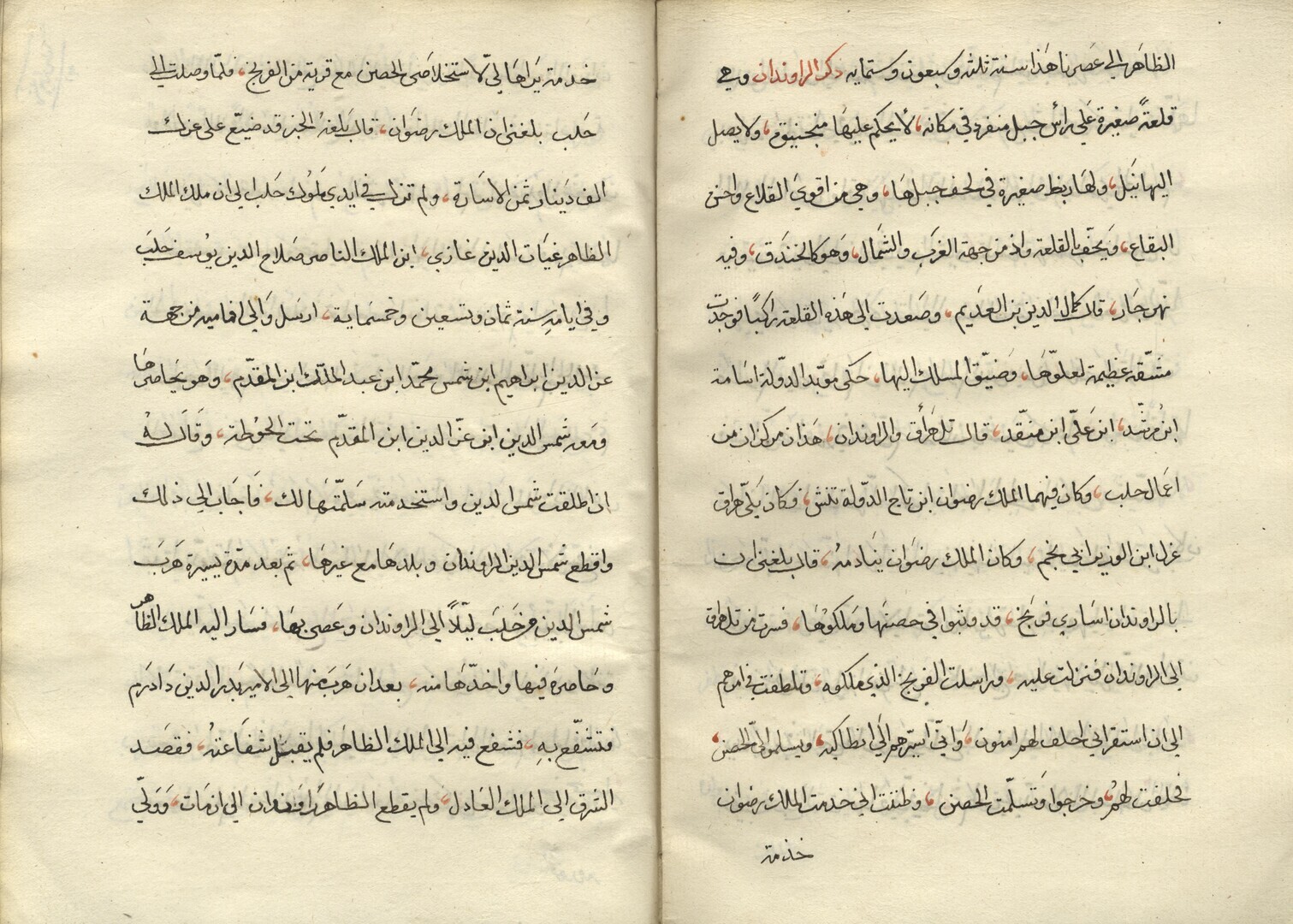History of Aleppo (Izz’ al-Din Ibn Shaddad, Al-A’lak al-Khafira fi Dikr Umara al-Sham wa al-Jazeera).
Ibn Shaddad, ‘Izz al-Din
Synopsis
ʿIzz al-Dīn Abū ʿAbdallāh Muḥammad b. ʿAlī b. Ibrāhīm Ibn Shaddād al-Anṣārī al-Ḥalabī (1217-1285) was a Syrian author of topographical and historical works. A famous secretary of the chancellery and skilful administrator, he was employed by the ruler of Aleppo, al-Malik al-Nasir, who sent him in 1242-43 on a mission to inspect finances in Haran. Later, in 1259 when the Mongols were approaching, he was instructed to accompany the ruler’s family from Damascus to Aleppo and to negotiate an agreement with the Mongols. The negotiations were not successful; northern Syria was overrun, and Ibn Shaddad fled to Egypt in 1261.
It was in Egypt that he wrote his main works: the historical topography of Syria and Djazira entitled al-’A’laq al-khaṭīra fī dhikr umarāʾ al- Shām wa-l-Jazīra (“Treasure trove on the subject of the princes of Greater Syria and Upper Mesopotamia”) and his political history al- Rawḍ al-zāhir fī sīrat al-Malik al-Ẓāhir (“Blossoming meadows in the life of al-Malik al-Ẓāhir [Sultan Baybars]”).
An exceptionally rare example of a text in Arabic, produced for a European (here probably from Lyon, France) on western paper; still in its contemporary ‘Western-style’ Arabic binding.
[Encyclopaedia of Islam, volume III, p. 933.]








